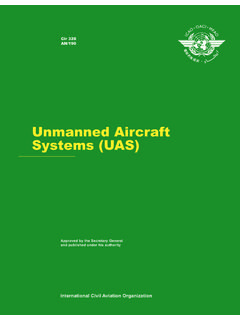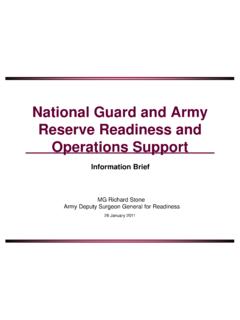Transcription of Open Mathematical Education Notes - IMVIBL
1 IMVI open Mathematical Education Notes Vol. 1 (2011), 17-26 AN ESSAY ON Mathematical Education IN THE REPUBLIC OF SRPSKA, BOSNIA AND HERZEGOVINA Daniel A. Romano1 and Milovan Vin i 2 Abstract: The European Society for Research in Mathematics Education was founded in 1998. Since then, not a single institution or an individual from the areas of the former Yugoslavia have, yet joined the society or participated in any of its activities. This article has been written for the mathematics community of Bosnia and Herzegovina, and particularly for the Ministries of Education and Science, because of the need to begin the process of joining the European Society for Research in Mathematics Education . In particular, it is important that mathematicians become involved with research on mathematics Education .
2 In this article, the authors try to explain a number of problems related to mathematics Education . Thus, we will consider the need for a change in the goals of mathematics Education within the school system. On the other hand, we will explore the opinion that the Education ministry should consider the possibility of introducing different ways of teaching mathematics in primary and secondary schools, in order to follow, at least partially, the important reforms which are already taking place in this field. Key words and phrases: Mathematics Education ; aims of mathematics Education ; structure of mathematics Education in the Republic of Srpska, Bosnia and Herzegovina AMS Subject Classification (2010): 97A40, 97B50, 97C60 ZDM Subject Classificaion (2010): A40, B50, C60 1. The aims of mathematics Education The first school in which the concept of mathematics Education was formed was founded more than 1200 years ago (in 795, to be precise) in Aachen, during the reign of Charles the Great.
3 It is known that, at his personal request, a monk called Alcuin of York was brought to Britain because mathematics was taught at that school. It seems that the monk wrote the first textbook in medieval Europe, titled Problems to Sharpen the Yong (in English) or Propositiones ad Acuendos Juvenes (in Latin). The 18th assignment in the book was a well-known problem called on wolf, goat and cabbage . Since then, that assignment has been used in many mathematics texbooks. The sharping of the memory is the aim of mathematics Education at any level, especially in higher Education in the areas of technical and humanistic sciences. It is worth noting, in connection with the history of the first mathematics textbook, that on the 8th of August, 1900, David Hilbert read his famous paper Mathematical problems at the 1 Faculty of Education at the University of East Sarajevo, 76300 Bijeljina, Semberskih ratara Street , Bosnia and Herzegovina.
4 E-mail: 2 Faculty of Mechanical Engineering at Banja Luka University, 78000 Banja Luka, 75, Vojvode Stepe Stepanovi a Street, Bosnia and Herzegovina IMVI OMEN , Vol. 1 (2011) and i Second International Congress of Mathematicians, held in Paris. The paper began with the words [10]: Who of us would not be glad to lift the veil behind which the future lies hidden; to cast a glance at the next advances of our science and at the secrets of its development during future centuries? What particular goals will there be toward which the leading Mathematical spirits of coming generations will strive? What new methods and new facts in the wide and rich field of Mathematical thought will the new centuries disclose?
5 At this point, Hilbert had already formulated a sufficiently general view of the state of mathematics at the time, and set a number of unsolved Mathematical problems that formed an outline of the considerable efforts being made by mathematicians across the world. In the 20th century, no mathematician has repeated David Hilbert s attempt and nothing of a similar nature has been written since the beginning of the 21st century. At best, a few syntheses that referred to separate Mathematical fields have been made. For example, International Meetings of Mathematicians, including the one held in Berlin in 1998, are testament to that fact. No mathematician has yet presented a general Mathematical view at any of these meetings. This may be because of the complexity and clumsiness of Mathematical disciplines.
6 According to Victor Antonovich Sadovnichii, who presented a paper at the Mathematical conference Mathematics Education : The Present and Future , which was held in 2000 in Russia, the reasons lie elsewhere (The All-Russian Conference on Mathematical Education Mathematics and Society: Mathematical Education at the Frontier of Centuries; Russia, September 2000; available on ). Mathematics is an international science. Gogol once said that Pushkin s name immediately sparks thoughts about his role as the national poet of Russia. A similar statement regarding any mathematician would make no sense. In contrast to national languages, Mathematical language in an international language and Mathematical truths have no national borders. Mathematics has always been, and will always be an indivisible and essential part of human culture.
7 According to many scientists, it is a vital part of human nature to get to know and understand one s natural surroundings, and also the social milieu in which one lives and works. This is the basis of scientific, technical and technological progress. Lately, a new quality has been added to mathematics: mathematics Education is now considered to be an important component in the development of an individual. Mathematics Education is a treasure which every man has the right to, and it is the responsibility of the society (the national and international organizations) to provide an opportunity to every person to use that treasure. With regard to mathematics Education , it is necessary to perceive and to set the following: goals, principles and content of mathematics Education .
8 These principles and goals shall be analyzed in compliance with contemporary approaches in Mathematical research (such as those seen in the following books: [2], [7], [10], [12], [21] and articles [3]-[6], [9], [11], [13]-[20]. Before we present our opinion on mathematics Education , we will quote the results of some contemporary studies on the goals of mathematics Education which were carried out in some European countries, the United States, Canada, China and Australia. The results of these investigations were announced to the mathematics community at the international conference entitled Education , Science and Economy in the Third Millennium , which was held in Slovakia in 2000. An interesting question for this conversation was contained in the questionnaire: What is the aim of mathematics Education ?)
9 (Arrange the following answers according to their significance): 1. Preparation for higher Education , 2. Preparation for the future profession, 3. Intellectual development of an individual, 18 IMVI OMEN , Vol. 1 (2011) and i 4. Formation of the scientific view on the world, 5. Orientation in surrounding, 6. Physical training of brain . In the United States, Canada and some European countries where the studies were carried out, the greatest importance was attributed to the answer preparation for a future profession . According to Vladimir Mihailovich Tihomirov s announcement, in Russia, priority was given to the answer intellectual development , and the answer preparation for higher Education was in the last place (We are unaware of any similar research having been carried out in the Balkans) At the aforementioned conference, and according to the importance of these Mathematical goals, the following order was established: 1.
10 Intellectual development; 2. Orientation in one s surroundings; 3. The formation of the scientific view of the world, 4. Physical training of the brain; 5. Preparation for a future profession; 6. Preparation for higher Education . This is how teachers in the departments of the second (4th 6th grade) and third (7th 9th) cycles in primary school, the ones who teach mathematics in the high school (students of 15-17 years old) and lecturers in mathematics courses in institution of higher Education present the goals of mathematics Education to themselves. When analyzing this problem the aims of teaching mathematics in terms of the development of a fully educated personality it is logical to ask a question that applies to every human being: when a girl or a boy, aged 14 to 16, thinks about his/her future, and then asks himself/herself the questions: What does Mathematical Education give me?






